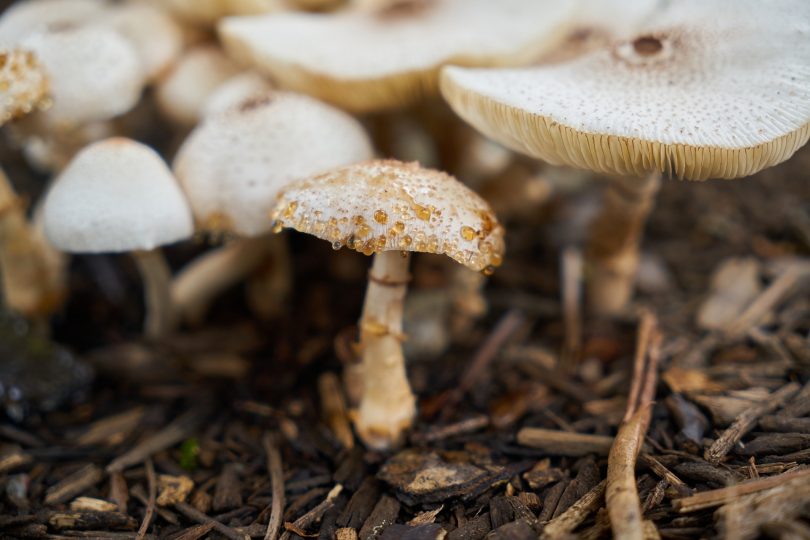How effective are psychedelics in treating various mental health and substance abuse disorders compared to traditional pharmaceuticals?
Also known as hallucinogens, psychedelics are substances that trigger changes in mood, perception, and state of mind. Ultimately, they can cause visual, auditory, and psychological changes and an altered state of consciousness. While some psychedelics are natural and are found in leaves, seeds, and fungi, others are synthetically made.
Here’s a look at some psychedelics currently undergoing clinical trials:
DMT
N,N-dimethyltryptamine (DMT) is a hallucinogen found in several plants, including chacruna, a shrub found predominantly in South America. Research suggests that DMT can disrupt the brain chemistry that promotes feelings of depression. [1] So far, the substance has demonstrated positive effects on treating depression, post-traumatic stress disorder (PTSD), and substance abuse. [2]
When combined with other therapies, DMT may target the root cause of these negative thought patterns.
UK-based neuropharmaceutical company Small Pharma is conducting its Phase I/IIa clinical trial for a DMT-based treatment for major depressive disorder. The product, SPL026, may be ideal for short, focused therapy sessions that can bypass the need for more intense therapy overseen by healthcare professionals.
Ibogaine
Ibogaine is a natural psychoactive substance found in the iboga shrub, a perennial rainforest plant that grows in Central Africa. The psychoactive compound has been shown to be effective in treating opioid use disorder (OUD). [3]
The ongoing opioid crisis has been met with challenges in terms of treatment. Many of the therapies designed to treat opioid addiction come with their own risk of abuse, along with various side effects.
Recently, DemeRx and Atai Life Sciences partnered to start a Phase I/IIa trial of ibogaine hydrochloride as a potential treatment for OUD. Previously, the CEO of DemeRx conducted a study in which participants safely entered sobriety following opioid abuse with no evidence of added risk of substance abuse. Given these findings, ibogaine may be a promising substance to help patients battling OUD.
Psilocybin
Among the more common naturally-occurring psychedelics is psilocybin, a hallucinogenic substance found in certain mushrooms grown in the US, Mexico, South America, and Europe. Commonly referred to as “magic mushrooms” among recreational consumers, fungi that contain psilocybin produce hallucinogenic effects when ingested.
In addition to the psychoactive effects of psilocybin, the natural substance may also play a role in reducing the debilitating effects of major depressive disorder (MDD).
Researchers at Imperial College London began a trial out of the school’s Center for Psychedelic Research to test psilocybin and its effects on depression. The Phase II controlled trial compared the effects of psilocybin to a selective serotonin reuptake inhibitor (SSRI) over a six-week period in patients battling MDD. Half of the trial group took a psilocybin formulation, while the other half took the SSRI.
There was no significant difference between each group on depression scores, suggesting that psilocybin may work just as well as pharmaceuticals to treat depression.
Anyone looking to try natural psychedelics as an alternative or accompaniment to traditional therapies is encouraged to discuss their intentions with their physicians.
References
[1] Osório Fde L, Sanches RF, Macedo LR, et al. Antidepressant effects of a single dose of ayahuasca in patients with recurrent depression: a preliminary report. Braz J Psychiatry. 2015;37(1):13-20. [journal impact factor = 3.000; times cited = 273][2] Bouso J.C., Riba J. Ayahuasca and the Treatment of Drug Addiction. In: Labate B.C., Cavnar C. (eds) The Therapeutic Use of Ayahuasca. 2014. Springer, Berlin, Heidelberg.
[3] Davis AK, Barsuglia JP, Windham-Herman AM, Lynch M, Polanco M. Subjective effectiveness of ibogaine treatment for problematic opioid consumption: Short- and long-term outcomes and current psychological functioning. J Psychedelic Stud. 2017;1(2):65-73. [journal impact factor = N/A; times cited = 18 (Semantic Scholar)]
Image source: Engin_Akyurt via Pixabay








